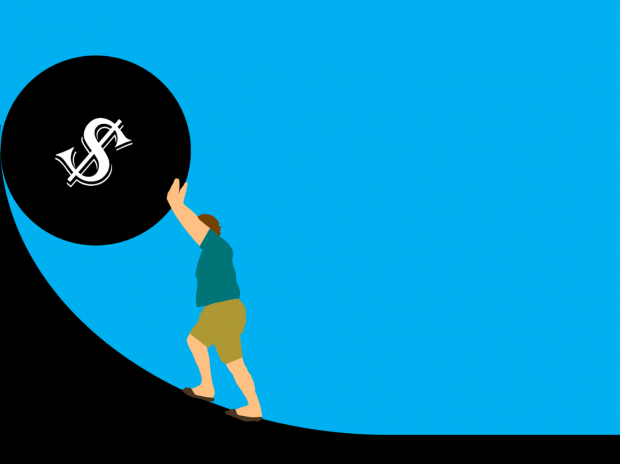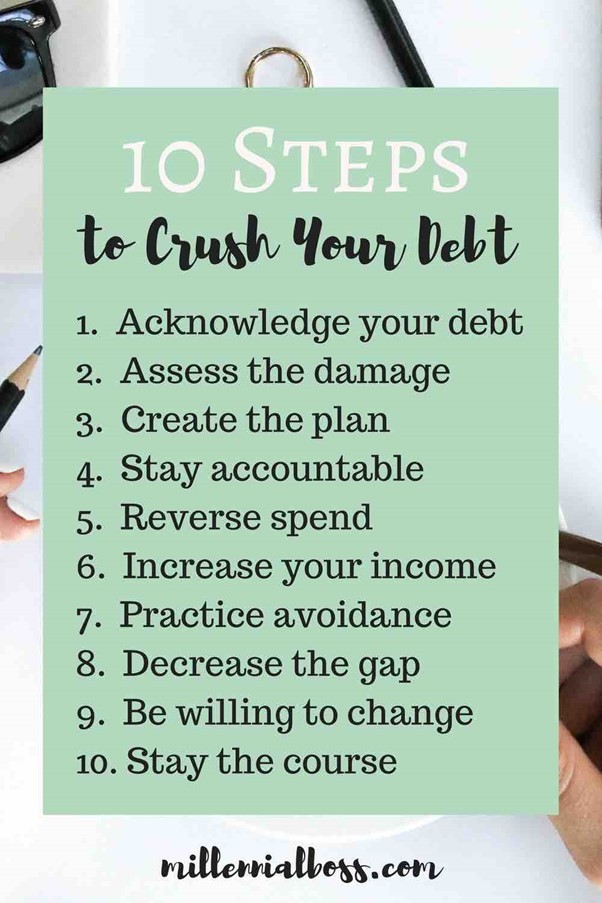
Paying debt is a long-term commitment that needs tons of planning and effort. You need to make timely payments to avoid penalties or risk your credit score. With proper planning and dedication, any kind of debt is manageable. Fortunately, there are things that you can do to make this task a bit easier.
Being debt-free is a state that everyone wants to be in. If you don't have any debts to worry about, you can use your extra resources in other things, such as investing or making a retirement fund. You can let your imagination run wild...
Although reaching the debt-free state is challenging, this feat is still doable. Continue reading to learn more about some tips and tricks.
Why Is Timely Debt Payment Necessary?
Paying debts can be an overwhelming experience, especially if you need to make numerous timely payments each month. In addition to debt payments, you also need to distribute enough funds for your essential needs. If you're not careful in managing your cash, you will likely get into trouble due to late debt payments.
A lot of people stick to paying their debt payments on time to avoid fees and penalties. It can also create a big dent in your credit score and credit history. Besides, you would also be considered as a delinquent debtor, which impacts your ability to get loans in the future.

Unfortunately, missing a payment once or twice can happen, especially if you're not optimizing your habits and spendings to prioritize your debt. There are also instances of emergency spending, in which you need to use your money for something that needs immediate attention.
8 Tips To Pay Your Debts Effectively
Are you having a hard time paying your debts effectively? Did you already miss a payment or two due to ineffective money management?
If the answer is yes, read below and check out some debt-payment tricks presented below. You might be able to pick something useful for your situation.
1. Evaluate Your Debts
Your debt can either be one of the following: a high-interest debt or a long-term installment debt. Evaluate your debts and divide them into these two categories. The rule of thumb is to try and eliminate the high-interest debts first (such as credit card loans.)
If you leave these debts left unpaid for an extended period, you will accrue and pay more interest, making the loan more expensive than needed to be. You can also pay above the minimum payment required if you have extra funds to shorten the term.
2. Make and Follow a Budget
Now that you know which debt to prioritize, it's time to make a budget. This step will help you see the bigger picture of your finances. Budgeting enables you to see what expenses are needed and what should be cut down from your monthly spendings. But to make budgeting work, you need to stick to it every month.
One of the popular budgeting strategies is the 50/30/20, wherein you allocate 50% of your income to necessities, 30% on wants, and 20% on savings or debt payments. You can tweak the percentages into the figure that will work best in your debt situation.
3. Cut Expenses
Stop spending dollars on things that you can get for free or at a lower price. Things like entertainment, gym memberships, and food cravings would need to go to the backseat. Focus on your needs, and make sure to build some habits that help you avoid unnecessary expenditures.
4. Use Your Bonuses To Pay for Debts
But wait, aren't bonuses rewards for a job well done? Indeed, cash bonuses are one of the ways employers reward their employees after an exceptional performance. But instead of buying yourself an expensive thing, you can instead put it in your debt payment.
It might not seem like a satisfying thing to do, but it helps cut your time paying for debt. You need to consider this option if you want to be debt-free.
5. Avoid Using Your Credit Cards
If you're having a hard time paying your current debts, the worst thing you can do is to add more. Halting your credit card usage does not only help you focus on paying your debt. It also makes your credit score better.
https://www.moneymanifesto.com/15-ways-to-pay-off-your-debt-quicker-5793/
To help you with this cause, you might want to consider deleting your credit card information from online stores.
6. Find Additional Source of Income
Getting a side hustle is a good start if you want to pay your debts aggressively. The reasoning behind this is the same as using your bonuses for your debts. If you can put more toward your debt payments, the faster you can get your debts paid. And being debt-free opens up more opportunities like saving and investing.
7. Debt Consolidation
If you have multiple debts, you might want to consider debt consolidation or putting numerous debts into a new one at a lower interest rate. Once consolidated, you only need to pay one loan, which is great for creating a budget.
However, banks and lenders will only let people with good credit scores avail of this option. Your lender might also set up custom requirements based on your debt and your current situation.
8. Debt Relief Options
Unfortunately, there are times wherein the debts are just too big to be paid on time despite the debtor's best efforts. The remaining option when this situation happens is debt relief. If half of your gross annual income goes directly to your debt payments, then it might be time to consider giving up and getting debt relief.
Take note: debt relief can hit just as bad as bankruptcy. Once you get the ball rolling, you need to follow it until the end or suffer a big hit on your credit score. Debt consolidation is one of the safest options for debt relief, but you need to make all your payments in time.
Tested and Proven Methods
Financial expert Dave Ramsey invent several strategies to help debtors pay their dues in a manageable manner. In practice, the Avalance Method is the approach preferred if you want to pay less interest. On the other hand, the Snowball Method gives you a sense of achievement in paying debts and reducing accounts with outstanding balances.
Avalanche Method
The Avalanche Method works by paying your debt from the highest interest rate to the lowest. You need to at least pay for the minimum payment required each month to avoid defaulting. After that, if there is any leftover from your fund, you should use it to make additional payments on the debt with the highest interest rate.
Once the account with the highest interest rate gets paid, you should focus on the account with the second-highest rate next. Due to its nature, you would likely need to pay in longer terms before eliminating an account.
Snowball Method
The Snowball Method works differently compared to the Avalance Method. You still need to pay for the minimum payment required to avoid defaulting on your loan. But instead of using your extra fund to the debt with the highest interest rate, you're instead paying for the accounts with the smallest balance.
This method is great if you have numerous smaller loans, and the number of balances is getting more overwhelming. However, the downside of this method is that you will likely end up paying more interest expense over time.



















